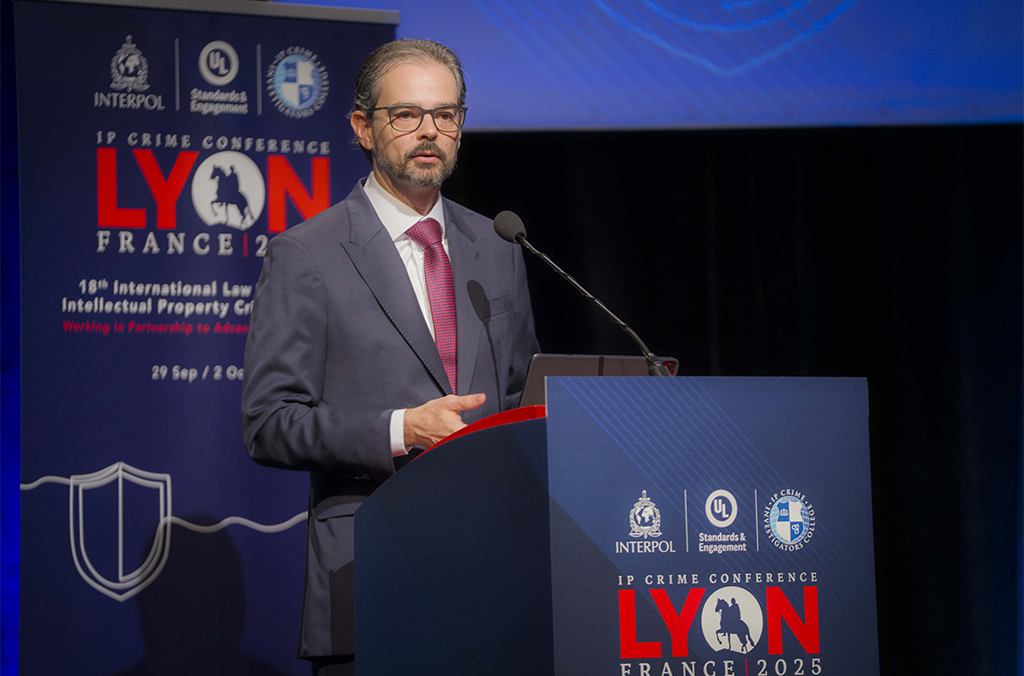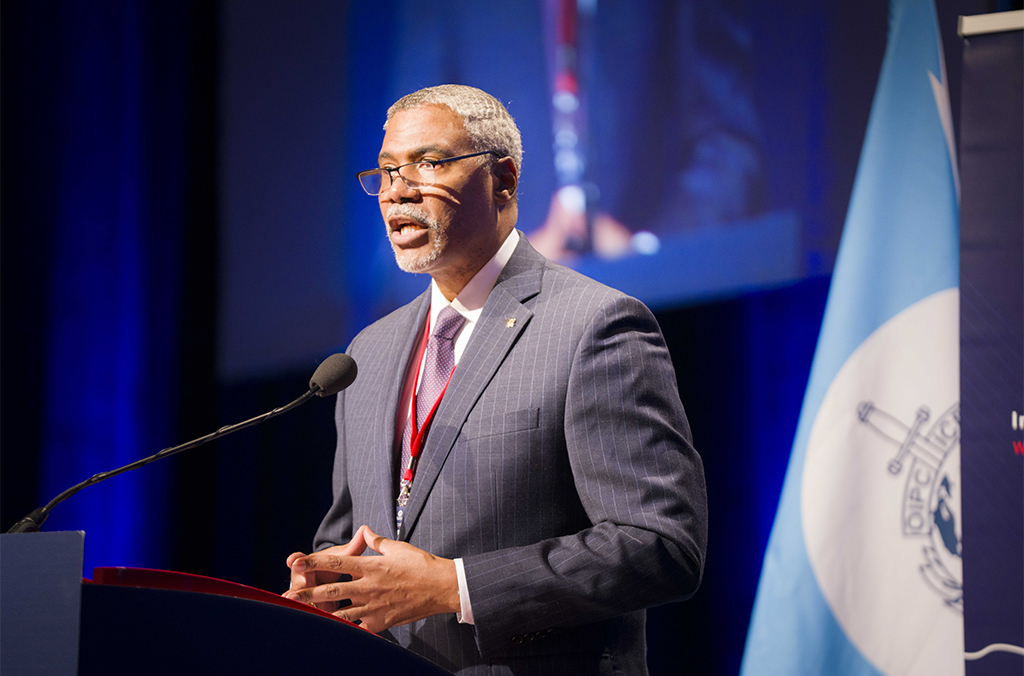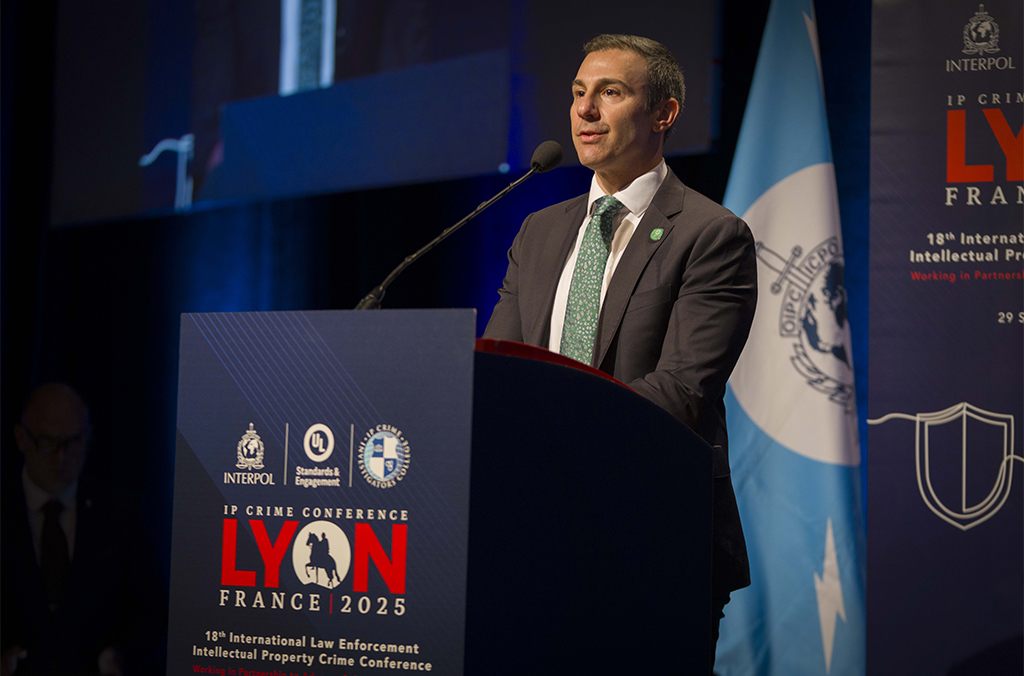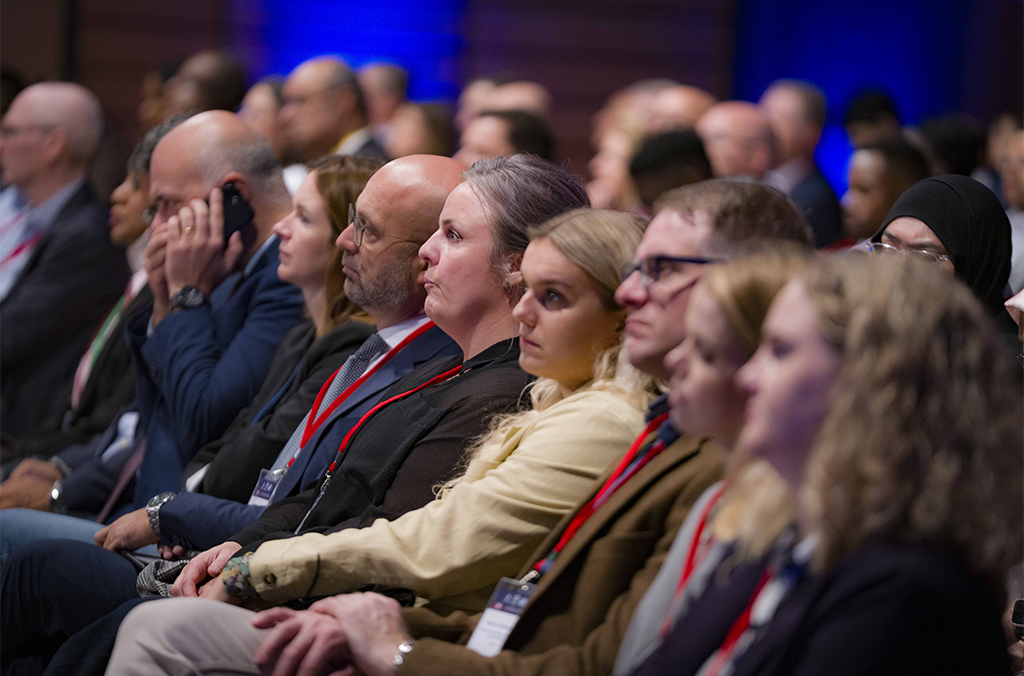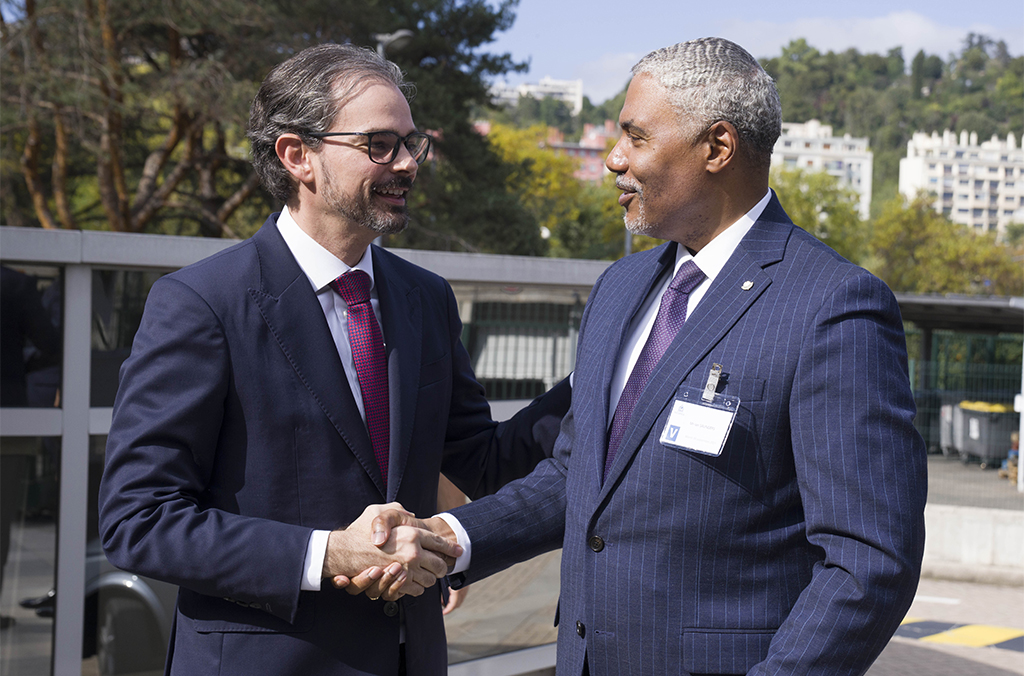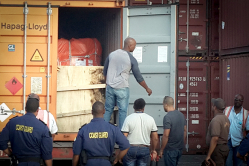LYON, France – Illicit medicines, defective electronics and other fake goods are flooding global markets, endangering lives, damaging economies and undermining security worldwide.
From food and fashion to construction materials and lithium-ion batteries, counterfeiters have now expanded to virtually every product category, while copyright pirates have built lucrative networks to distribute unauthorized books, music and software.
These intellectual property (IP) crimes are often considered by the public as low-harm offences. For law enforcement and industry experts, however, the reality is stark: IP crime is a growing threat to public health, safety and security.
In response to this global issue, 450 participants from some 70 countries and 230 cross sector organizations gathered at the 2025 International Law Enforcement IP Crime Conference (30 September - 1 October) under the theme “Working in Partnership to Advance Safety and Security”.
The annual conference, co-hosted by INTERPOL and UL Standards & Engagement (ULSE), was delivered by the INTERPOL Global Academy through its International IP Crime Investigators College (IIPCIC). It brought together senior law enforcement officials, industry leaders, academia and experts in IP crime to exchange best practices, share research, discuss emerging safety challenges, strengthen cooperation and partnerships, and promote capacity building and training initiatives.
Working together to combat organized crime
In his opening remarks INTERPOL Secretary General Valdecy Urquiza emphasized the critical link between IP crime and organized crime, underscoring the need for a comprehensive approach to dismantling the criminal networks driving these offences.
“IP crime poses profound threats, not only to industries but also to individuals and governments.
It undermines innovation, creativity, and erodes public trust. By building capacity, by strengthening networks and by sharing knowledge and expertise, we secure one essential result: operational readiness. The readiness to anticipate, to investigate and to counter malicious networks.”
In his keynote address, World Customs Organization Secretary General Ian Saunders said:
“Only by working together can we enhance intelligence sharing, build capacities, and prevent counterfeit and dangerous goods from moving through the global trade ecosystem.”
Other speakers at the conference expanded on the link between the low-risk, high-reward model of counterfeiting and piracy and a broad spectrum of other serious crimes, illustrating its scale with examples ranging from corruption to human trafficking.
Addressing how to confront these challenges, ULSE President and CEO Jeff Marootian highlighted the role of training and partnerships in strengthening the global response, stating:
“Through the International IP Crime Investigators College, UL Standards and Engagement and INTERPOL use state-of-the-art practices to ensure enforcement partners have access to the latest tools and training methods to keep dangerous goods off the market. No country, agency, or organization can face these challenges alone.”
The conference also showcased pioneering approaches to strengthening law enforcement capacity against IP crime. Immersive learning virtual reality training workshops run by the IIPCIC took participants from an INTERPOL classroom into simulated operational environments, where officers practiced handling counterfeit goods and fraudulent documents.
Other key agenda highlights included:
- Environmental impact of counterfeit goods: Experts addressed the environmental costs of illicit products across the supply chain, from production and transport to storage and disposal. Counterfeiters often bypass safeguards, releasing toxic chemicals, hazardous waste and pollutants into air, water, and soil. Such practices put both ecosystems and communities at serious risk.
- Illicit pharmaceuticals and medical devices: Participants warned of a sharp rise in falsified and unapproved medicines worldwide. Earlier in 2025, Operation Pangea XVII, an INTERPOL-coordinated operation conducted across 90 countries, seized 50.4 million doses of illicit pharmaceuticals worth USD 65 million.
- Risks during transport and transit: Speakers underlined the safety and security dangers linked to the movement of counterfeit goods, particularly hazardous or volatile items. For example, counterfeit lithium batteries pose a major fire risk due to substandard manufacturing and lack of safety features, making them a significant threat during transport.
- IIPCIC Awards: On the final day, participants recognized outstanding contributions to IP crime prevention. An award was presented to the Director of Dubai Police’s Virtual Technology Center for pioneering the use of immersive technologies to combat IP crime. The team behind Operation Archer in Newport, UK was also honoured for its innovative use of civil recovery powers to tackle IP crime.




